
N'Djamena: The Gateway to Chad's Rich Heritage
N'Djamena, the capital city of Chad, is a melting pot of cultures and a hub of historical significance. Located at the confluence of the Chari and Logone rivers, this vibrant city offers a unique blend of traditional African charm and modern urban life. Visitors are often struck by the city's welcoming atmosphere and the friendly nature of its residents. One of the highlights of N'Djamena is its bustling Central Market, where you can immerse yourself in the local culture. From fresh produce to handcrafted goods, the market is a treasure trove of Chadian life. Don't miss the opportunity to try some local delicacies, such as grilled fish and millet porridge. For history enthusiasts, the National Museum of Chad is a must-visit. The museum houses an impressive collection of artifacts that tell the story of Chad's rich history and diverse cultures. Here, you can learn about the ancient civilizations that once thrived in the region and see fascinating exhibits on traditional Chadian crafts and customs. Nature lovers will appreciate the scenic beauty of the Chari River, which offers picturesque views and opportunities for boat trips. The riverbanks are perfect for a leisurely stroll or a quiet picnic. If you're lucky, you might even catch a glimpse of the local wildlife, including hippos and various bird species.
Local tips in N'Djamena
- Visit the Central Market early in the morning to experience the freshest produce and beat the crowds.
- Always carry bottled water, as temperatures can be high and staying hydrated is essential.
- Respect local customs and dress modestly, especially when visiting religious sites.
- Hire a local guide to get the most out of your visit to historical and cultural sites.
- Learn a few basic phrases in French or Arabic, as they are widely spoken and will help you communicate better with locals.
N'Djamena: The Gateway to Chad's Rich Heritage
N'Djamena, the capital city of Chad, is a melting pot of cultures and a hub of historical significance. Located at the confluence of the Chari and Logone rivers, this vibrant city offers a unique blend of traditional African charm and modern urban life. Visitors are often struck by the city's welcoming atmosphere and the friendly nature of its residents. One of the highlights of N'Djamena is its bustling Central Market, where you can immerse yourself in the local culture. From fresh produce to handcrafted goods, the market is a treasure trove of Chadian life. Don't miss the opportunity to try some local delicacies, such as grilled fish and millet porridge. For history enthusiasts, the National Museum of Chad is a must-visit. The museum houses an impressive collection of artifacts that tell the story of Chad's rich history and diverse cultures. Here, you can learn about the ancient civilizations that once thrived in the region and see fascinating exhibits on traditional Chadian crafts and customs. Nature lovers will appreciate the scenic beauty of the Chari River, which offers picturesque views and opportunities for boat trips. The riverbanks are perfect for a leisurely stroll or a quiet picnic. If you're lucky, you might even catch a glimpse of the local wildlife, including hippos and various bird species.
When is the best time to go to N'Djamena?
Iconic landmarks you can’t miss
Radisson Blu Hotel, N'Djamena
Experience luxury and comfort at Radisson Blu Hotel, N'Djamena, your premier destination for a memorable stay in Chad's vibrant capital.
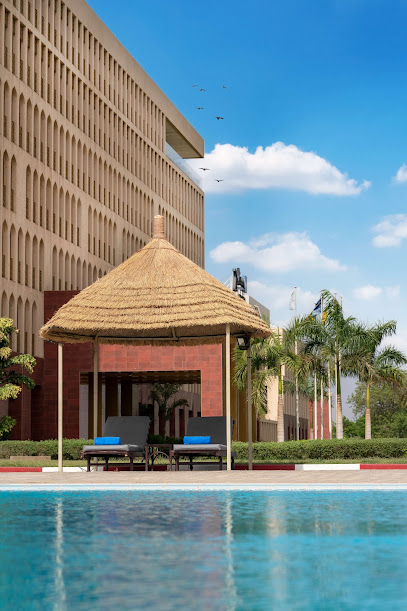
N'Djamena International Airport
Discover the adventure awaiting you in Chad through N'Djamena International Airport, your gateway to the heart of Africa.
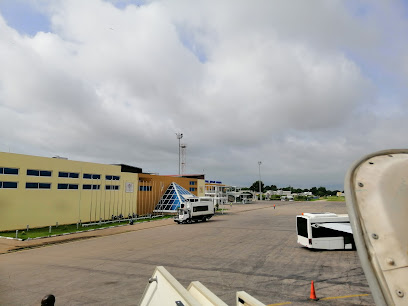
La Résidence Hotel N'Djamena
Discover the charm of N'Djamena with a luxurious stay at La Résidence Hotel, where comfort meets local culture in a unique experience.

N'Djamena Grand Mosque
Discover the N'Djamena Grand Mosque, a symbol of Islamic heritage and architectural beauty in the heart of Chad's capital.
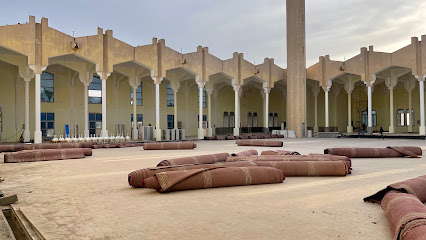
National Square (Place de La Nation، ساحة الأمة)
Experience tranquility and local culture at National Square, the heart of N'Djamena's community life, where nature meets tradition.
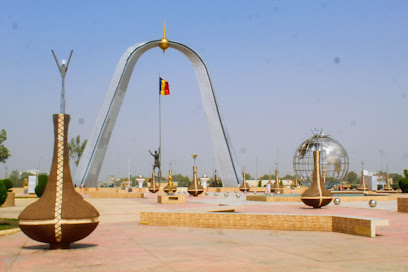
National Museum of Chad
Discover Chad's rich history and cultural heritage through fascinating exhibits at the National Museum in N'Djamena.
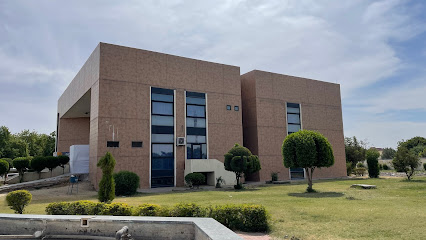
La CAVE
Experience authentic Italian cuisine at La CAVE in N'Djamena, renowned for its delicious pizzas and welcoming atmosphere, perfect for all food lovers.
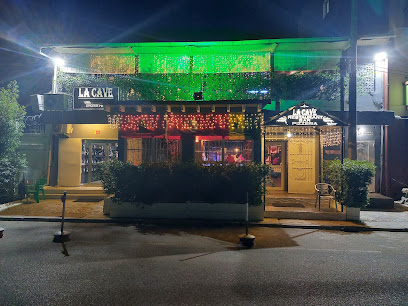
Ndjamena
Discover the rich culture and vibrant spirit of Chad in N'Djamena, where tradition meets modernity in a captivating urban landscape.
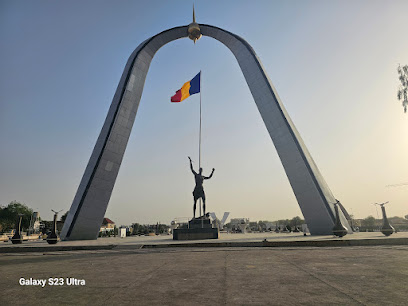
Hôtel Irrisor
Discover comfort and local charm at Hôtel Irrisor, your perfect base for exploring the vibrant capital of N'Djamena, Chad.

Tchad Evasion Travel Agency
Discover Chad's hidden treasures with Tchad Evasion Travel Agency, your expert guide to the country's stunning landscapes and rich cultural experiences.
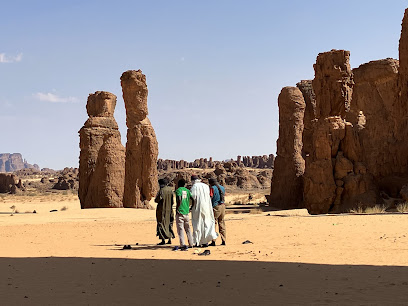
Centre de Conferences Radisson Blu Hotel
A modern conference center in N'Djamena's Radisson Blu Hotel, offering extensive facilities and a convenient location for successful events.
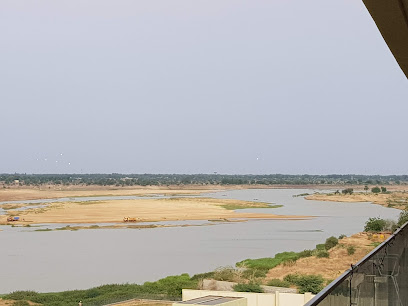
The Union Fountain
Discover the beauty and cultural significance of The Union Fountain in N'Djamena, a must-visit landmark in Chad's vibrant capital.
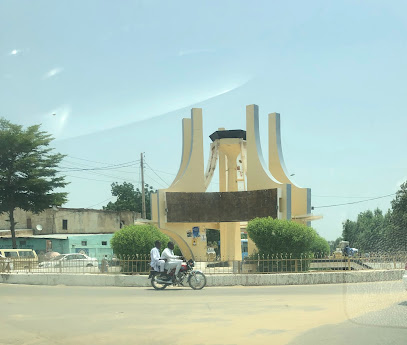
hotel la tchadienne ndjamena
Experience Chadian hospitality and modern comfort at Hotel La Tchadienne, your gateway to exploring N'Djamena's culture and attractions.
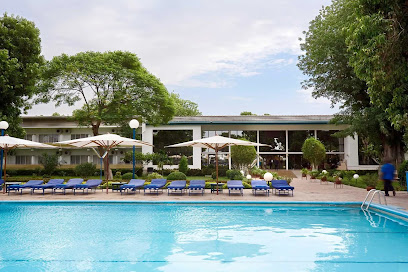
Le Nid du Dromadaire
Discover Le Nid du Dromadaire in N'Djamena: A private garden oasis offering tranquility and exclusive recreational space for families and couples.
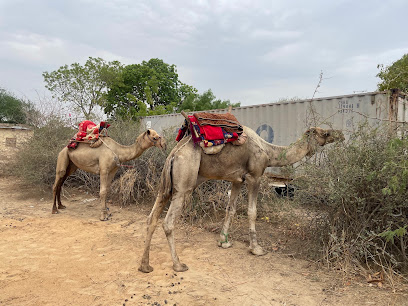
Eyte Voyages
Discover the vibrant culture and stunning landscapes of N'Djamena with Eyte Voyages, your trusted travel partner in Chad.
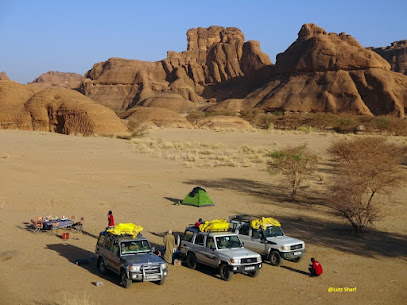
Unmissable attractions to see
N'Djamena Grand Mosque
Explore the architectural beauty and spiritual significance of N'Djamena Grand Mosque, a must-visit landmark in Chad's capital city.
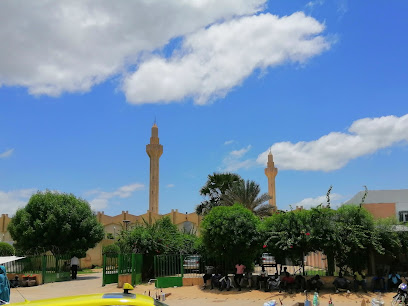
National Museum of Chad
Explore the National Museum of Chad to uncover the fascinating history and cultural heritage of this unique African nation.
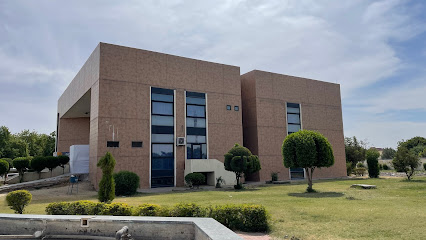
Idriss Mahamat Ouya Omnisports Stadium
Explore the vibrant sports culture at Idriss Mahamat Ouya Omnisports Stadium in N'Djamena, Chad, where thrilling events and local passion come alive.
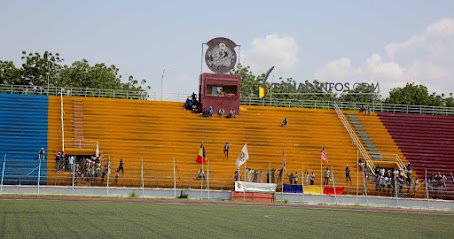
Ndjamena
Explore N'Djamena, Chad's bustling capital, where cultural richness meets spiritual heritage in a vibrant cityscape.
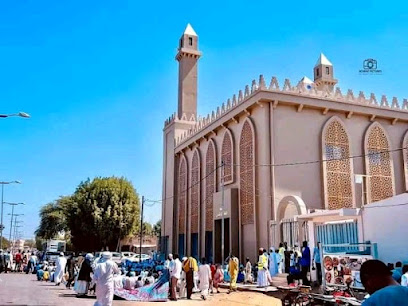
Musée de Gaoui
Explore the cultural treasures of Gaoui at Musée de Gaoui, a must-visit museum showcasing the vibrant history and artistry of the region.
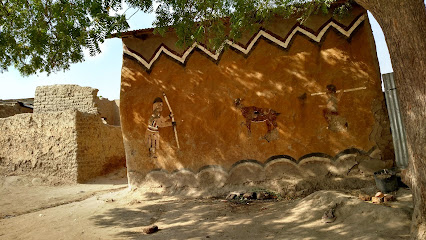
Round point
Discover the vibrant energy of Round Point in N'Djamena—where local culture and urban life intersect in a bustling atmosphere.
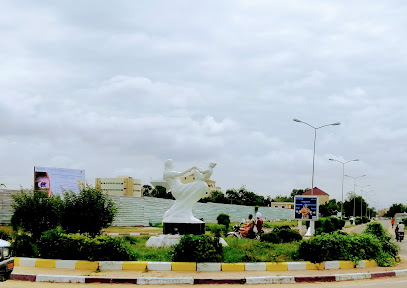
Parc d'attractions des enfants de Farcha
Experience family fun and adventure at Parc d'attractions des enfants de Farcha, the premier amusement park in N'Djamena, Chad.
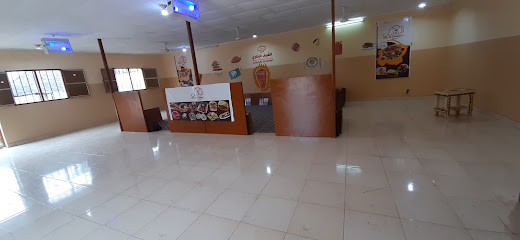
Monument du Commandant Lamy
Discover the Monument du Commandant Lamy in Kousseri, Cameroon—an iconic tribute to history and culture, blending the past with the present in a vibrant setting.
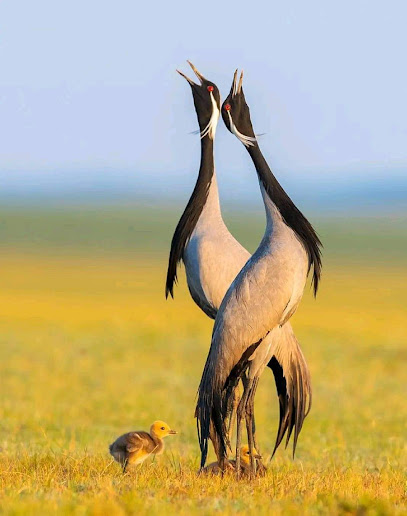
SPACE AQUA PARK
Experience the thrill of water adventures and family fun at Space Aqua Park, the ultimate amusement park in N'Djamena, Chad.
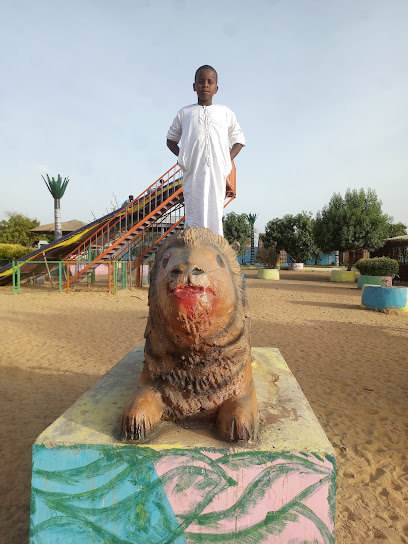
Ardèbè
Explore Ardèbèbè, a serene tourist attraction in Moulouang, Cameroon, offering breathtaking landscapes and rich cultural experiences.

bouta courant d'amtoukoui
Dive into adventure at Bouta Courant d'Amtoukoui, the ultimate water park experience in N'Djamena, perfect for families and thrill-seekers alike.

Essential places to dine
Layalina
Discover Layalina: A top-rated restaurant in N'Djamena serving authentic Chadian cuisine and international delights in a warm atmosphere.
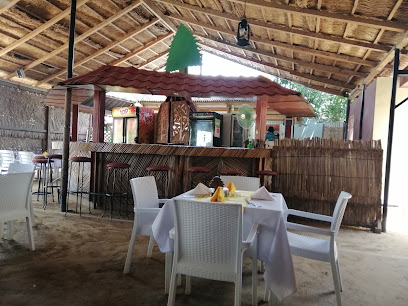
Au Bout Des Doigts
Discover authentic Chadian flavors at Au Bout Des Doigts, a must-visit restaurant in N'Djamena offering a delightful dining experience.
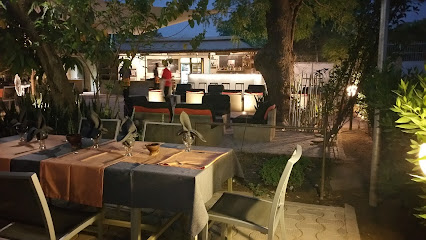
Perception Pub-Restaurant
Discover Perception Pub-Restaurant: A vibrant culinary oasis in N'Djamena offering exquisite dishes and lively nightlife.
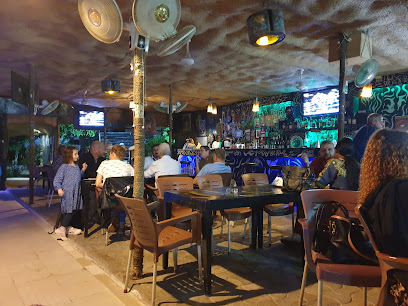
Le Central Bar Restaurant Hôtel Pizzeria
Savor authentic Chadian flavors and international dishes at Le Central Bar Restaurant Hôtel Pizzeria in N'Djamena.
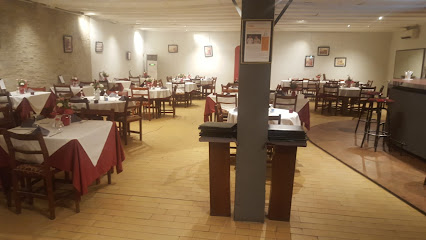
Rotana Salam Sudanese Restaurant
Savor authentic Sudanese cuisine in N'Djamena at Rotana Salam Restaurant – where every meal is a celebration of flavor and culture.
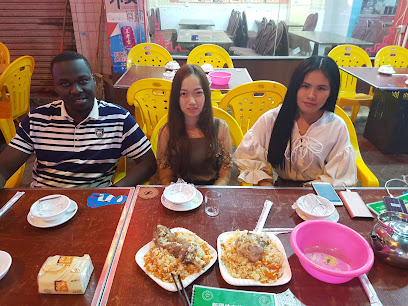
La CAVE
Discover La CAVE in N'Djamena - where delicious pizzas meet warm hospitality in an inviting atmosphere.
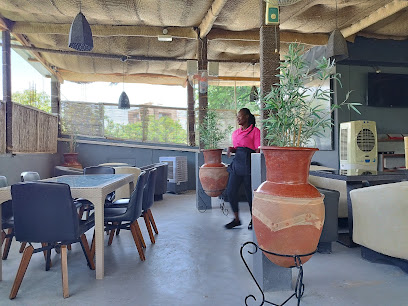
Chez Yvonne's Restaurant
Experience authentic Chadian cuisine at Chez Yvonne's Restaurant in Djamena - where every dish tells a story.
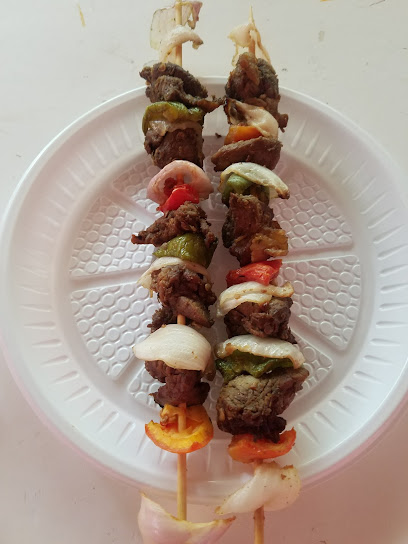
Restaurant Beyrouth
Discover authentic Lebanese cuisine at Restaurant Beyrouth in N'Djamena – where every meal tells a story through rich flavors.
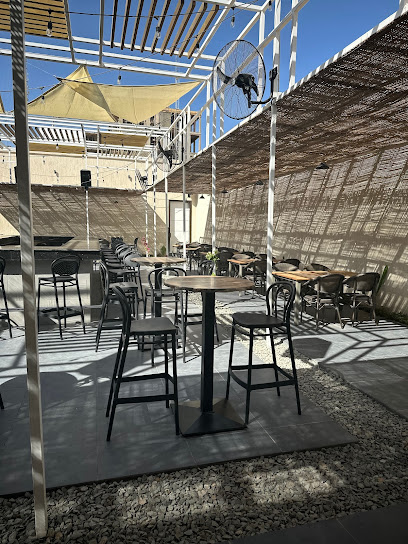
The Neighbourhood's Gate Restaurant (Bab Al-Hara)
Savor the essence of Chad at The Neighbourhood's Gate Restaurant - a delightful escape into authentic Chadian flavors in N'Djamena.
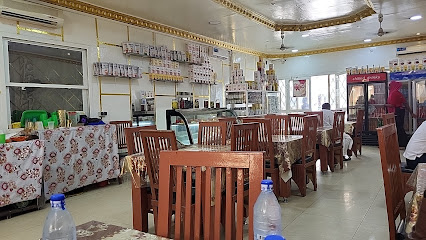
آخر ساعة
Savor exquisite flavors at آخر ساعة - a culinary oasis in N'Djamena featuring delightful local and international dishes.
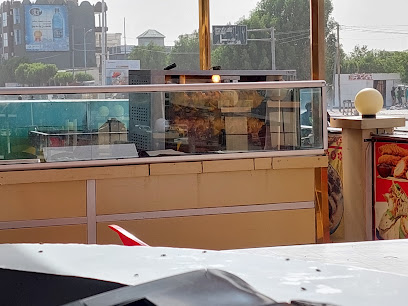
Zenzibar
Experience authentic Asian cuisine at Zenzibar in N'Djamena - where every dish tells a story!
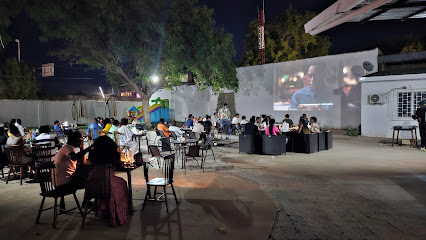
PastaBox Tchad
Discover authentic Italian cuisine at PastaBox Tchad in N'Djamena - where every pasta dish is crafted with love and tradition.
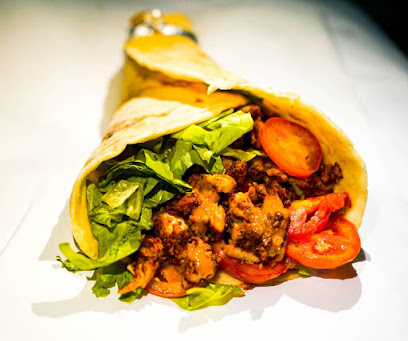
Al Afrah Restaurant
Discover authentic Chadian flavors at Al Afrah Restaurant in N'Djamena – where every meal tells a story of tradition and taste.
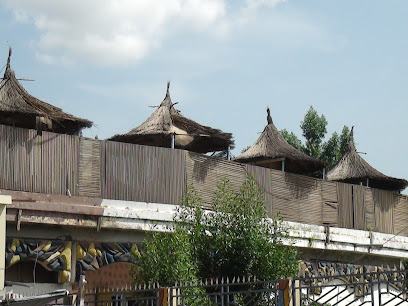
N'Djamena Food
Experience authentic Chadian cuisine at N'Djamena Food - where local flavors meet international dishes in a warm and inviting setting.
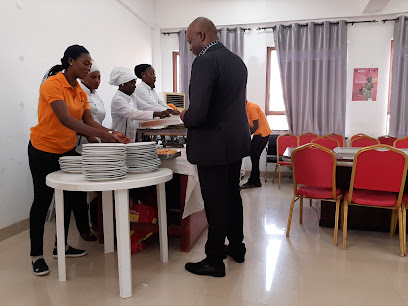
La Promenade
Experience authentic Chadian flavors at La Promenade in N'Djamena – where local cuisine meets international flair.
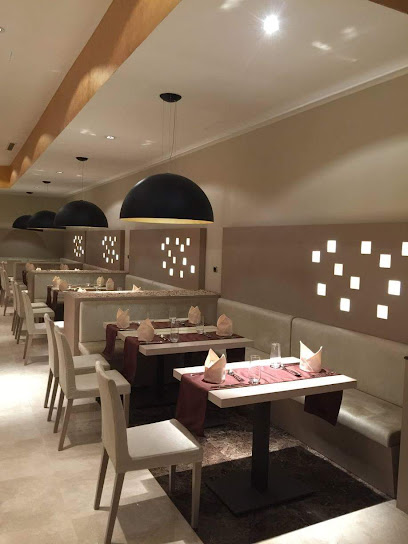
Markets, malls and hidden boutiques
City Market
Explore City Market in N'Djamena, where vibrant culture, delicious street food, and unique local crafts come together in a lively shopping experience.
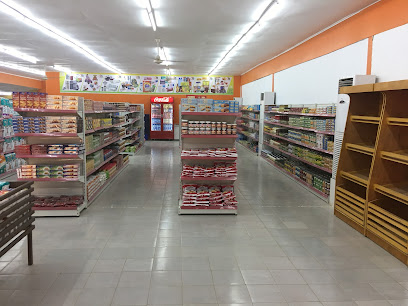
Le GRAND MARCHE
Discover the essence of N'Djamena at Le GRAND MARCHE, a bustling grocery store offering fresh produce and local delights.
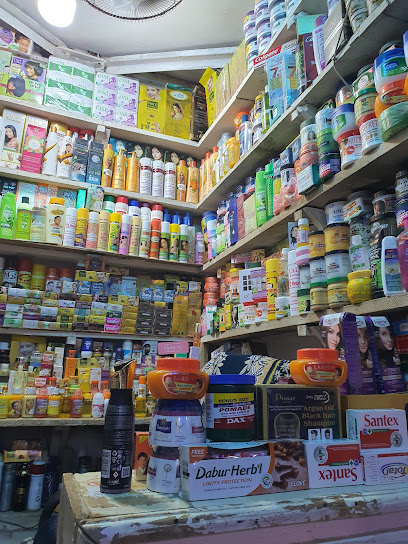
Super Market
Discover the heart of N'Djamena at the Super Market, where local culture meets vibrant shopping experiences in the capital of Chad.
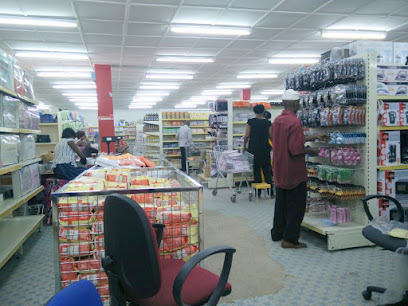
Grocery store
Experience the vibrant local culture of N'Djamena at its best with a visit to this authentic grocery store, offering fresh produce and local delicacies.
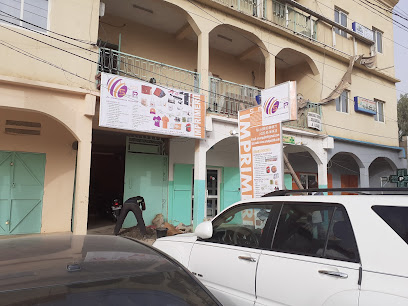
Boutique MAG N’Djamena
Discover the essence of Chad at Boutique MAG N'Djamena, where local craftsmanship meets contemporary design in the heart of the city.
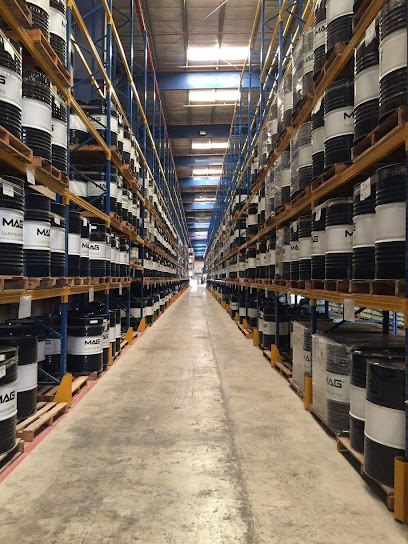
Albasse Shopping
Explore Albasse Shopping in N'Djamena for the latest trends in men's fashion, offering a mix of quality, style, and affordability.
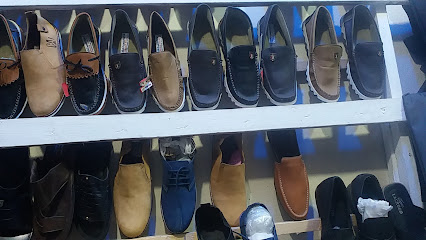
Ndjamena shopping
Discover the heart of Chad's fashion at Ndjamena Shopping, where local styles and contemporary trends meet in a vibrant shopping experience.
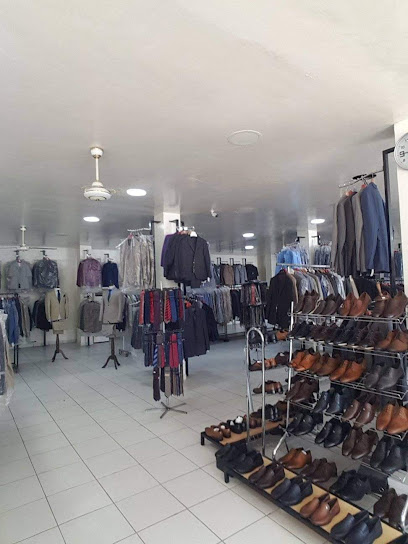
Boutique Aboussounoute
Explore Boutique Aboussounoute in N'Djamena for exquisite furniture that fuses modern elegance with local craftsmanship, perfect for any home decor.
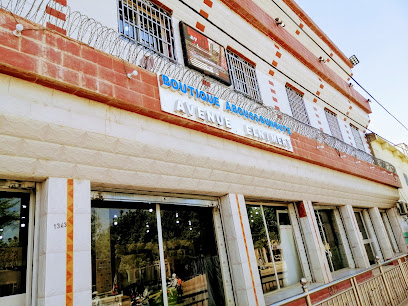
Chadian Handicraft and Art Marketplace
Explore the Chadian Handicraft and Art Marketplace for unique souvenirs and an authentic cultural experience in N'Djamena.
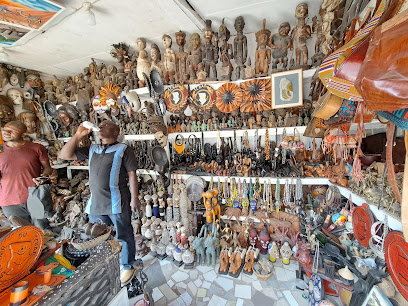
Boutique A fashion
Discover unique fashion pieces at Boutique A Fashion, a stylish clothing store in N'Djamena that showcases local designs and contemporary trends.

BOUTIQUE AL MALIKA
Discover Boutique Al Malika in N'Djamena, where traditional elegance meets modern fashion in a vibrant shopping experience.
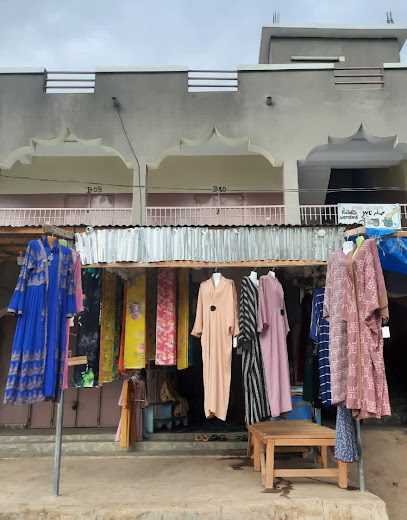
Boutique Hemchi du grand marché
Experience the fusion of local culture and modern technology at Boutique Hemchi du Grand Marché in N'Djamena, a top destination for electronics enthusiasts.
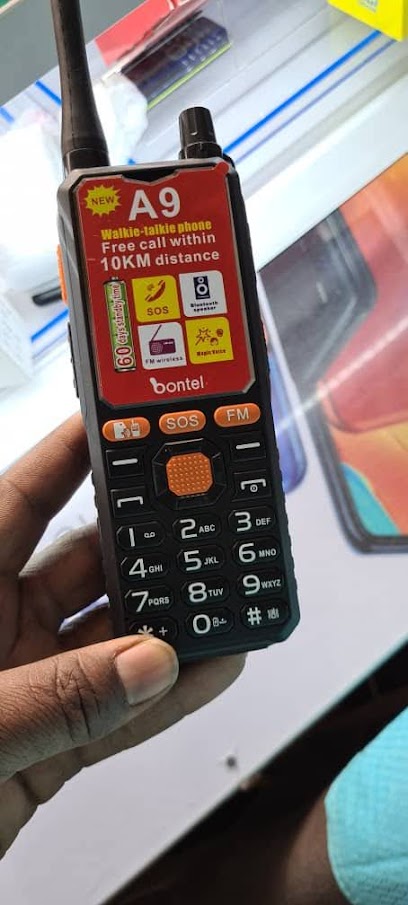
M H A (HASSANY)
Discover a vibrant shopping haven at M H A (HASSANY) in N'Djamena, where local culture and unique products come together for an unforgettable experience.
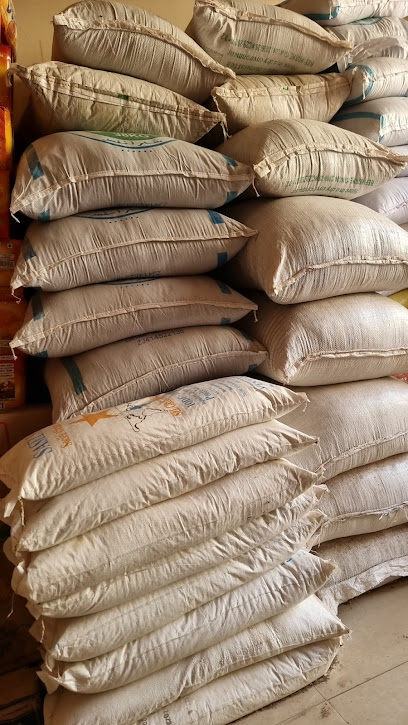
BOUTIQUE AL AMMARAH
Explore the charm of Boutique Al Ammarah, a unique women's clothing store in N'Djamena, showcasing vibrant local fashion and accessories.
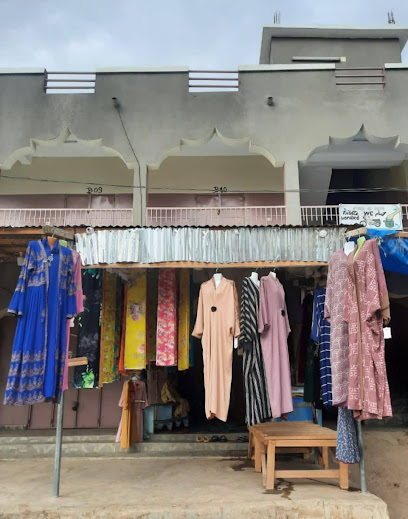
Boutique la difference
Explore the finest cosmetics and beauty products at Boutique la Difference in N'Djamena, a unique shopping destination for beauty enthusiasts.
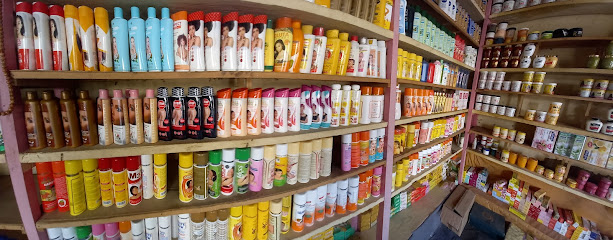
Essential bars & hidden hideouts
Perception Pub-Restaurant
Discover a blend of local flavors and international delights at Perception Pub-Restaurant, the vibrant heart of N'Djamena's culinary scene.
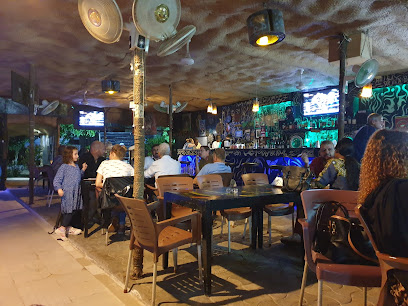
Le planète
Experience the vibrant nightlife of N'Djamena at Le Planète, your go-to bar for refreshing drinks and lively ambiance.
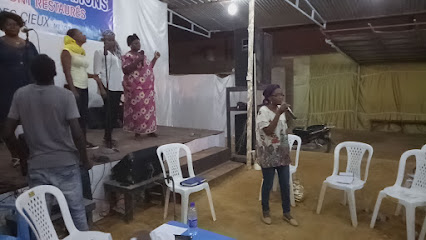
Walia
Experience the vibrant nightlife at Walia, a charming bar in N'Djamena, where local flavors and warm hospitality create unforgettable moments.
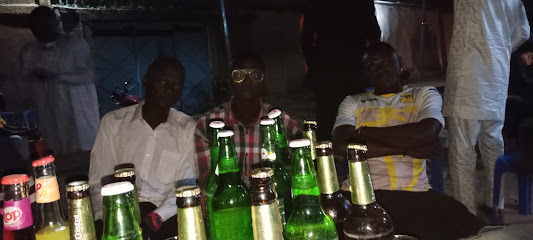
Diguel
Discover the vibrant atmosphere of Diguel, a must-visit bar in N'Djamena, offering local drinks and live music in a cozy setting.
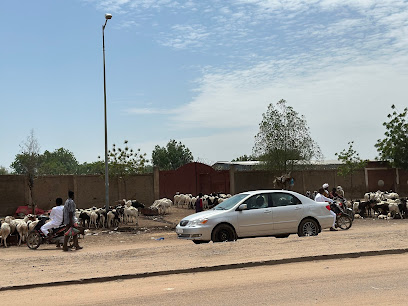
Ets ESPACE VERT LA GRÂCE
Experience the vibrant atmosphere of Ets ESPACE VERT LA GRÂCE, a must-visit bar in N'Djamena offering local drinks and a taste of Chad's nightlife.
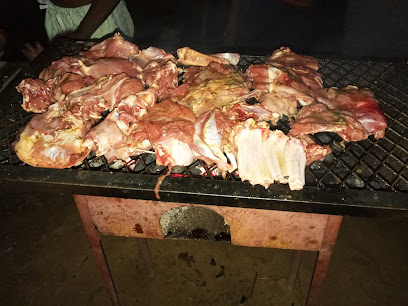
Bar Bistro Farcha Madjorio
Discover the vibrant nightlife and local flavors at Bar Bistro Farcha Madjorio in N'Djamena, the perfect spot to relax and socialize.

Bar 5/5
Discover the lively spirit of N'Djamena at Bar 5/5, where refreshing drinks and local culture come together for an unforgettable experience.
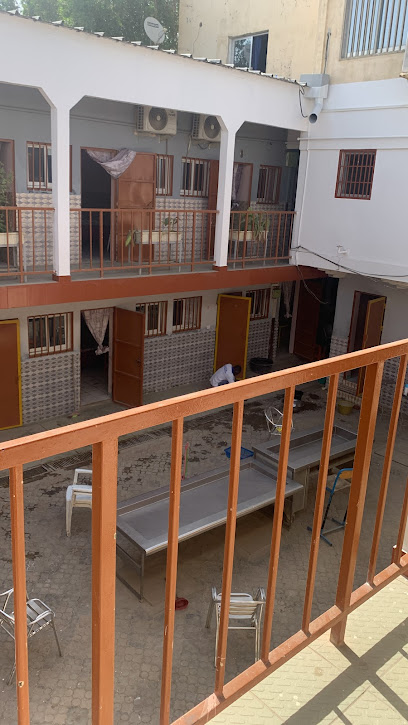
PALACE sports bar & casino
Discover the heart of N'Djamena's nightlife at PALACE Sports Bar & Casino - where excitement and great company meet!
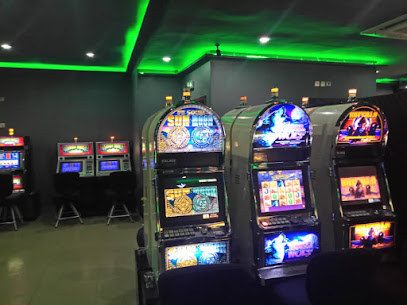
Bar Maïlaï
Discover the charm of N'Djamena at Bar Maïlaï, where local drinks and friendly faces create an unforgettable experience.

Cubaña Café N'Djamena
Discover the vibrant nightlife of N'Djamena at Cubaña Café, where local flavors and a lively atmosphere await every visitor.
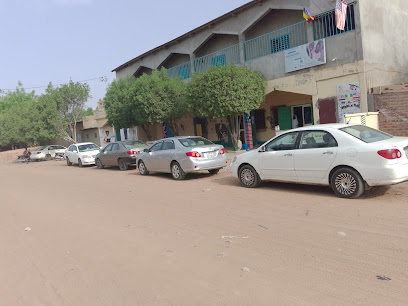
Black&white
Experience the vibrant nightlife of N'Djamena at Black&White Bar, where local culture meets modern flair for unforgettable evenings.

Bar Chamade
Experience the vibrant nightlife of N'Djamena at Bar Chamade, where local culture meets a lively social scene.

Cave MG
Experience the finest selection of wines at Cave MG, a cozy wine bar in N'Djamena, where every sip tells a story.
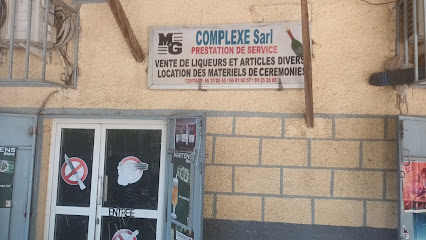
Ndjindja Tiso
Discover the vibrant nightlife of Ndjindja Tiso, a lively bar in N'Djamena where locals and tourists come together to enjoy drinks and culture.
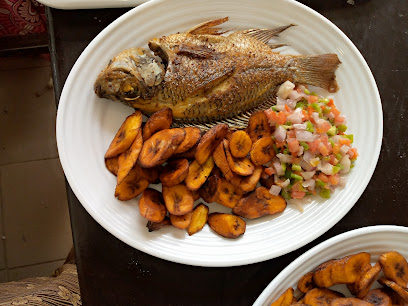
Tchad - Laborex Bar_CECADEV
Discover the vibrant nightlife of N'Djamena at Laborex Bar, where local drinks and friendly faces await you.

Local Phrases
-
- HelloSalam
[sa-laam] - GoodbyeSalam
[sa-laam] - YesEeh
[eeh] - NoLa
[la] - Please/You're welcomeAkei
[a-kei] - Thank youSara
[sa-ra] - Excuse me/SorrySamakei
[sa-ma-kei] - How are you?Izay koua?
[i-zay kou-a] - Fine. And you?Aguin. Na koua?
[a-guin. na kou-a] - Do you speak English?Tayo nanglai?
[ta-yo nang-lai] - I don't understandHandeera
[han-dee-ra]
- HelloSalam
-
- I'd like to see the menu, pleaseNda ababa menu, akei
[nda a-ba-ba me-nu, a-kei] - I don't eat meatTayo ayzoune kahi
[ta-yo ay-zou-ne ka-hi] - Cheers!Ayo!
[a-yo] - I would like to pay, pleaseNda atoune, akei
[nda a-tou-ne, a-kei]
- I'd like to see the menu, pleaseNda ababa menu, akei
-
- Help!Sos!
[sos] - Go away!Hala!
[ha-la] - Call the Police!Tayo lissane polisse!
[ta-yo lis-sa-ne po-lis-se] - Call a doctor!Tayo lissane maitre!
[ta-yo lis-sa-ne mai-tre] - I'm lostTayo nangai
[ta-yo nan-gai] - I'm illTayo nangai
[ta-yo nan-gai]
- Help!Sos!
-
- I'd like to buy...Nda adi...
[nda a-di...] - I'm just lookingTayo nangai
[ta-yo nan-gai] - How much is it?Izay koua?
[i-zay kou-a] - That's too expensiveNda kafia
[nda ka-fi-a] - Can you lower the price?Tayo antoura kafia?
[ta-yo an-tou-ra ka-fi-a]
- I'd like to buy...Nda adi...
-
- What time is it?Izay koua?
[i-zay kou-a] - It's one o'clockIzay sou kisoune
[i-zay sou ki-sou-ne] - Half past (10)Izay sou kisoune
[i-zay sou ki-sou-ne] - MorningAma
[a-ma] - AfternoonKousou
[kou-sou] - EveningSoulou
[sou-lou] - YesterdayAinai
[ai-nai] - TodayAmi
[a-mi] - TomorrowAminou
[a-mi-nou] - 1Ki
[ki] - 2Sou
[sou] - 3Kisou
[ki-sou] - 4Kikou
[ki-kou] - 5Kitou
[ki-tou] - 6Kisou
[ki-sou] - 7Kikou
[ki-kou] - 8Kitou
[ki-tou] - 9Kisou
[ki-sou] - 10Kikou
[ki-kou]
- What time is it?Izay koua?
-
- Where's a/the...?Izay a...
[i-zay a...] - What's the address?Izay soumou...
[i-zay sou-mou...] - Can you show me (on the map)?Tayo nangai (a map)?
[ta-yo nan-gai (a map)?] - When's the next (bus)?Izay soumo (bus)?
[i-zay sou-mo (bus)?] - A ticket (to ....)Tayo nangai (to ....)
[ta-yo nan-gai (to ....)]
- Where's a/the...?Izay a...
History of N'Djamena
-
N'Djamena, originally known as Fort-Lamy, was founded in 1900 by French colonial forces. It was established as a military outpost on the banks of the Chari River, strategically positioned to control the region and facilitate French colonial interests in Central Africa.
-
In 1973, the city was renamed N'Djamena, which translates to 'place of rest' in Arabic, by President François Tombalbaye as part of his campaign to Africanize the names of cities and institutions in Chad. This change was a significant step in the post-colonial identity formation of the nation.
-
N'Djamena has witnessed several civil conflicts, especially during the late 20th century. The First Chadian Civil War (1965-1979) and the subsequent conflicts in the 1980s significantly impacted the city's infrastructure and population, leaving scars that are still visible today.
-
In recent decades, N'Djamena has experienced periods of economic growth, driven by the oil industry. The discovery of oil reserves in the Doba Basin and subsequent exploitation has brought about significant changes in the city's economic landscape, attracting investment and development.
-
N'Djamena is a melting pot of cultures, reflecting the diverse ethnic groups of Chad. The city's markets, such as the Central Market and the Grand Marché, are vibrant hubs where one can experience the rich tapestry of Chadian culture through traditional crafts, foods, and music.
-
The city is home to several key educational institutions, including the University of N'Djamena, established in 1971. These institutions play a crucial role in the intellectual and cultural development of the city, fostering a new generation of thinkers and leaders.
-
As the capital city, N'Djamena is the political heart of Chad. It houses the Presidential Palace, the National Assembly, and numerous administrative offices. The city's political landscape has been shaped by various leaders and political movements throughout Chad's history.
N'Djamena Essentials
-
N'Djamena, the capital city of Chad, is primarily accessed via N'Djamena International Airport (NDJ). The airport serves several international airlines, including flights from Europe, the Middle East, and other African countries. Once you arrive, taxis are available to take you into the city center. If you are coming from neighboring countries, buses and shared taxis are also options, though these can be less reliable and slower than air travel.
-
Within N'Djamena, transportation options include taxis, motorcycle taxis (locally known as 'clandos'), and minibuses. Taxis are the most comfortable option and can be hired for specific trips or for the entire day. Motorcycle taxis are cheaper but less safe. Minibuses are the least expensive option and follow fixed routes throughout the city. Car rental services are available but driving can be challenging due to traffic conditions and road quality.
-
The official currency in Chad is the Central African CFA Franc (XAF). Credit cards are not widely accepted, so it is advisable to carry cash. ATMs are available in major banks and some hotels but may not always be reliable. It is recommended to withdraw sufficient cash for your needs upon arrival. Currency exchange services are available at the airport and in major banks.
-
N'Djamena is generally safe for tourists, but it is essential to take standard precautions. Avoid walking alone at night and stay vigilant in crowded places to prevent pickpocketing. Areas such as Moursal and Chagoua have higher crime rates, so it's best to avoid these neighborhoods, especially after dark. Always keep your valuables secure and be cautious when using public transportation.
-
In case of emergency, dial 17 for police assistance, 18 for fire services, and 2251-4242 for medical emergencies. The General Hospital of N'Djamena is the main medical facility in the city. It's advisable to have travel insurance that covers medical emergencies and evacuation. Most pharmacies are well-stocked, but it's wise to bring any essential medications with you.
-
Fashion: Do dress modestly, covering shoulders and knees, especially in public and religious places. Avoid wearing revealing clothing. Religion: Do respect local customs and traditions. Always remove your shoes when entering mosques and dress conservatively. Public Transport: Do be respectful and give up your seat to elderly passengers. Don't eat or drink on public transport. Greetings: Do greet people with a handshake; men often greet each other with a pat on the back. Eating & Drinking: Do try local dishes and accept food offerings graciously. Don't refuse hospitality, as it is considered impolite.
-
To experience N'Djamena like a local, visit the bustling markets such as the Grand Marché, where you can buy everything from fresh produce to local crafts. Engage with locals who are generally friendly and eager to share their culture. Don't miss visiting the National Museum of Chad to learn about the country's rich history. For a unique experience, enjoy a boat ride on the Chari River, offering picturesque views of the city and surrounding areas.
Trending Landmark in N'Djamena
-
Radisson Blu Hotel, N'Djamena
-
N'Djamena International Airport
-
La Résidence Hotel N'Djamena
-
N'Djamena Grand Mosque
-
National Square (Place de La Nation، ساحة الأمة)
-
National Museum of Chad
-
La CAVE
-
Ndjamena
-
Hôtel Irrisor
-
Tchad Evasion Travel Agency
-
Centre de Conferences Radisson Blu Hotel
-
The Union Fountain
-
hotel la tchadienne ndjamena
-
Le Nid du Dromadaire
-
Eyte Voyages
Nearby Cities to N'Djamena
-
Things To Do in Maroua
-
Things To Do in Maiduguri
-
Things To Do in Garoua
-
Things To Do in Yola
-
Things To Do in Ngaoundéré
-
Things To Do in Kano
-
Things To Do in Jos
-
Things To Do in Carnot
-
Things To Do in Foumban
-
Things To Do in Kaduna
-
Things To Do in Bertoua
-
Things To Do in Bamenda
-
Things To Do in Abuja
-
Things To Do in Mbouda
-
Things To Do in Bafoussam







